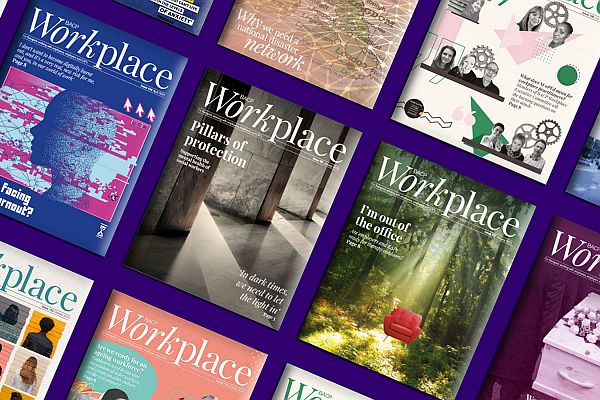You’ll need a good answer to this question if you or your clients are on the hunt for a new job in 2022. According to some recent research, 41% of people planning to leave their current jobs in the next six to 12 months cited poor workplace culture as a key reason for leaving.1
Retention is a key issue for those employers experiencing staff shortages in both the public and private sectors. Our lead article, ‘Working with the police’, is written by Zoe Davenport, who leads a national police psychological health surveillance programme to support better emotional, psychological and physical health. Once considered a career for life, Zoe is candid about the horrifying realities of daily life in policing, including exposure to being physically assaulted, stabbed, shot, run over and even set on fire.
Despite referring to her work with the police as the hardest job she has ever had, due to chronic underfunding, negative press and the sheer horror of the work that officers carry out, Zoe’s reason for wanting to work with the police is clear; ‘It has been the job I have loved most and I have met some of the most incredible people, who deal with some of the worst aspects of humanity. My desire to provide support for those who protect us has not yet been diminished.’ Zoe wishes to see a fully funded national standard of clinical support for the police in the future – it’s a case she makes well.
Naomi Ward talks to me in ‘My workplace’ about how and why she gave up her job as an English teacher and became a coach working with educators across the world instead. Her love of English, poetry and metaphor shines through, which I found inspiring and soothing in equal measure. The Purpose Handbook is the latest book by author Eloise Skinner, who shares her fascinating insights on how we find our purpose.
How damaging is it for employers to do nothing when it comes to creating anti-racist workplaces? In short, the answer is ‘very’. Reflecting on the high-profile case of cricketer Azeem Rafiq and the inaction by Yorkshire Cricket Club to take seriously his formal complaints of racism, Letesia Gibson offers simple steps that employers can take to change the culture in ‘Race matters’. Having anti-racist policies in place is not enough, but one way of creating an inclusive anti-racist environment, is to create a culture of allyship. Anyone can be part of it and it doesn’t need to be about the big, brave gestures or whistleblowing. ‘Race matters’ offers food for thought and provides some practical steps that you can take to make your workplace a better place to work.
If asked the question, ‘Why do you want to work here?’, an answer which might include the words ‘because it feels a positive, supportive and inclusive place where people want to work’ sounds like the start of a pretty good reply.
References
1 https://hr.personio.de/hubfs/EN_Downloads/202104_HRStudy_UKI.pdf
Read more...

BACP Workplace
Subscribe for free access to the online journal

BACP Workplace division
BACP Workplace promotes and supports the professional practice of counselling in the workplace, and practitioners who have clients experiencing workplace concerns.

Blogs and vlogs 2022
News and views from members, staff and clients
Views expressed in this article are the views of the writer and not necessarily the views of BACP. Publication does not imply endorsement of the writer’s views. Reasonable care has been taken to avoid errors but no liability will be accepted for any errors that may occur.
